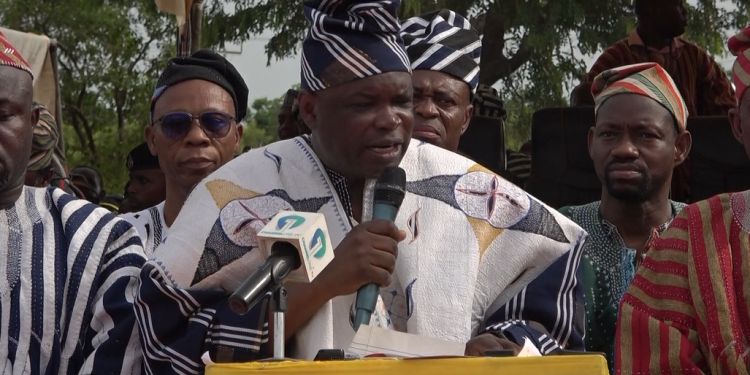Minister for Roads and Highways, Kwame Governs Agbodza, has revealed a major policy shift aimed at correcting long-standing imbalances in Ghana’s road infrastructure investment, with renewed focus on the northern parts of the country, particularly the Savannah Region.
Speaking at the 49th Annual Congress of the National Gonjaland Youth Association in Sawla, Mr. Agbodza noted that for decades, a disproportionate share of road funding has been concentrated in the southern corridor, especially between the Greater Accra and Ashanti regions.
“Currently, nearly 70% of road infrastructure expenditure is focused on the South. That is not equitable development,” he said. “We are going to change that narrative by reallocating resources to serve the needs of people in the North.”
He emphasized that this new policy direction aligns with President John Dramani Mahama’s broader commitment to inclusive national development, promising significant investment in roads across the Savannah Region.
The Minister also cautioned contractors assigned to the upcoming projects to meet high-quality standards or risk contract termination. “We will not compromise on quality. Deliver as expected, or lose the contract,” he warned, while acknowledging the dedication of contractors working under delayed payment conditions.
The congress, themed “Harnessing Natural Resources for Development in Gonjaland: The Role of the Youth,” also spotlighted challenges such as land disputes, security concerns, and infrastructural gaps in the region.
Education Minister Haruna Iddrisu, addressing the gathering, announced that the Ghana Tertiary Education Commission will provide a pick-up vehicle to the Savannah College of Education within 30 days. He also reaffirmed President Mahama’s vision of establishing a public university in every region, including the Savannah Region.
Savannah Regional Minister Salifu Be-Awuribe welcomed current efforts to review the 1930 Constitution of the Gonja Kingdom, describing the initiative as vital for modernizing traditional governance systems in the region.

